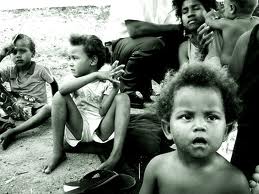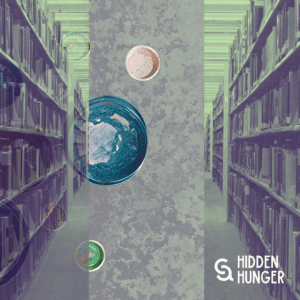 On June 28, I gathered in Britain with about 40 other American and British church leaders at Lambeth Palace for the London Forum to call on the leaders of the G-8 to expand our nations’ commitment to overcoming global poverty, especially in Africa. Chaired by the Archbishop of Canterbury, Rowan Williams, the London Forum called on the G-8 leaders meeting in early July in Scotland to increase aid, cancel more debt, and improve the opportunities for fair trade so that the poorest nations can make more rapid progress in overcoming poverty.
On June 28, I gathered in Britain with about 40 other American and British church leaders at Lambeth Palace for the London Forum to call on the leaders of the G-8 to expand our nations’ commitment to overcoming global poverty, especially in Africa. Chaired by the Archbishop of Canterbury, Rowan Williams, the London Forum called on the G-8 leaders meeting in early July in Scotland to increase aid, cancel more debt, and improve the opportunities for fair trade so that the poorest nations can make more rapid progress in overcoming poverty.
Every three seconds, a child in the developing world dies of poverty or diseases we know how to prevent. American, European and Japanese trade barriers, especially agricultural subsidies to wealthy farmers, lower the global prices of key African products and thus make it difficult for poor African countries to earn their way out of poverty. (For example, European farm subsidies produce a situation where every European cow receives a subsidy worth more than the annual income of each African worker!) “This means,” we concluded in our Church Leaders’ Statement at the London Forum, “that all of us in the prosperous world, governments, churches, the media, and populations, stand under judgment. We believe God judges nations by what they do to the poorest.”
Before the meeting at Lambeth Palace, the American delegation met with Chancellor Gordon Brown for an hour (the No. 2 person in British politics who will almost certainly become Prime Minister sometime in the next year or two). Both Brown and Prime Minister Tony Blair have been vigorous leaders in urging the rich nations to do more to overcome poverty in Africa. Brown was especially interested in what Richard Cizik (the NAE’s public policy person in Washington) and I said about the expanding commitment of American evangelicals to overcome poverty – Brown spent a couple minutes talking to the two of us after the meeting ended. Everyone recognizes that this key component of President Bush’s political base could have enormous influence in the task of urging President Bush to do more.
The day before we traveled to London, the U.S. delegation met in the White House with key policy people preparing for the G-8 summit. In that meeting we expressed our appreciation of the fact that President Bush has already done much to expand U.S. government foreign economic aid. He has tripled assistance to Africa and doubled overall U.S. foreign humanitarian aid since he became president. That is more than any President has done in decades. But we urged him to do more so that his record is not just good, but great.
Just before that meeting, I met in the White House with Tim Goeglein (the president’s liaison to the religious community) and urged the White House to dialogue more with a wider range of evangelicals, especially centrist and progressive evangelicals who largely agree with the president on life and family issues, but who want greater attention and resources focused on overcoming poverty and caring for creation.
At the London Forum, we sensed a kairos moment – a special historical time where God is moving in unusual ways to move our world toward greater justice. In spite of ongoing theological and other disagreements among Christians, the entire Christian community is uniting in an unprecedented way around overcoming global poverty, especially in Africa. Evangelicals and Pentecostals around the world are joining with Catholics and mainline Protestants to advocate for debt cancellation, increased aid and fair trade.
One of the striking new developments is the Micah Challenge. The Micah Challenge is organized by the World Evangelical Alliance (WEA) to support and promote the United Nations’ Millennium Development Goal to reduce global poverty by 50 percent by 2015. (The WEA is a network of 123 national evangelical church alliances in 123 countries representing about 3 million local churches and 385 million Christians.) More and more national Micah Challenge organizations are springing up around the world to work on this grand project for the next 10 years.
ESA is already at the center of this swelling tide of evangelical engagement on overcoming global poverty. And we can do more. Every ESA member could do the following:
- Go to the Micah Challenge website (www.micahchallenge.org) and sign up to join the campaign and get the regular updates (I am on the Steering Committee for the Micah Challenge USA);
- Consider coming to New York this September for a day or two to join Micah Challenge leaders and a vast range of others from around the world who will meet near the United Nations as scores of heads of State gather to evaluate the progress being made to meet the Millennium Development Goals (more information will be on the ESA website soon);
- Join the One Campaign (recently endorsed by Rick Warren) – a very broad movement of religious and secular organizations (Bono is a key mover!) to urge the U.S. government to increase economic foreign aid by 1 percent ($25 billion) of the federal budget (www.one.org);
- Write your Senators and members of the House urging them to restore (in the budget they will approve in early fall) the full request by President Bush for foreign economic aid. (The House cut the president’s request by a couple billion dollars!). In fact, tell them that the evangelical community wants Congress to authorize even more than the president requested.
We stand at an historic moment of unusual opportunity to dramatically reduce global poverty. Evangelicals are strategically placed to play an especially crucial role. As I look back on the almost 30 years since I first wrote Rich Christians in an Age of Hunger I am amazed at what God has already done, and very excited about what God wants to do through us in the next decade. Let’s seize this opportunity!


